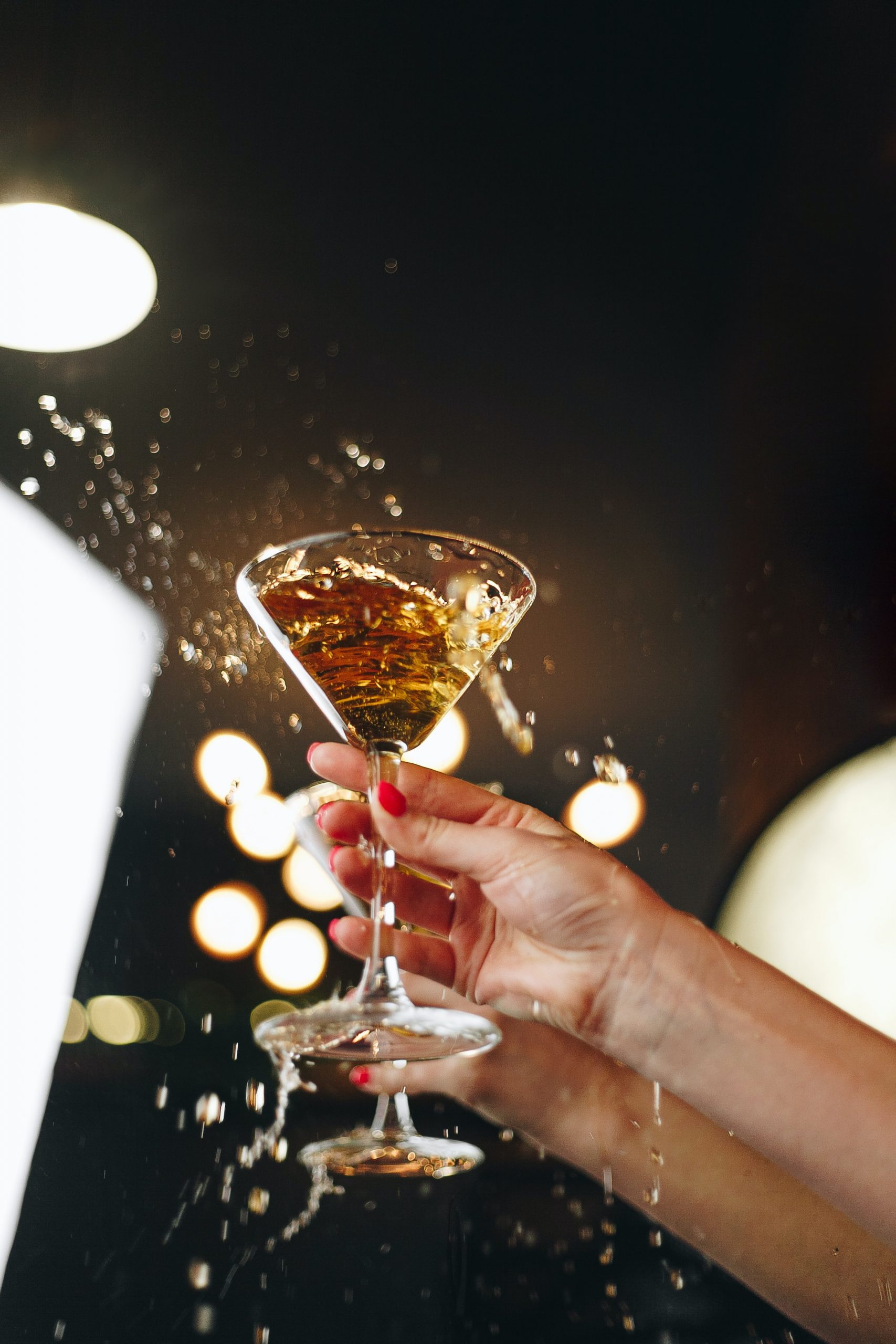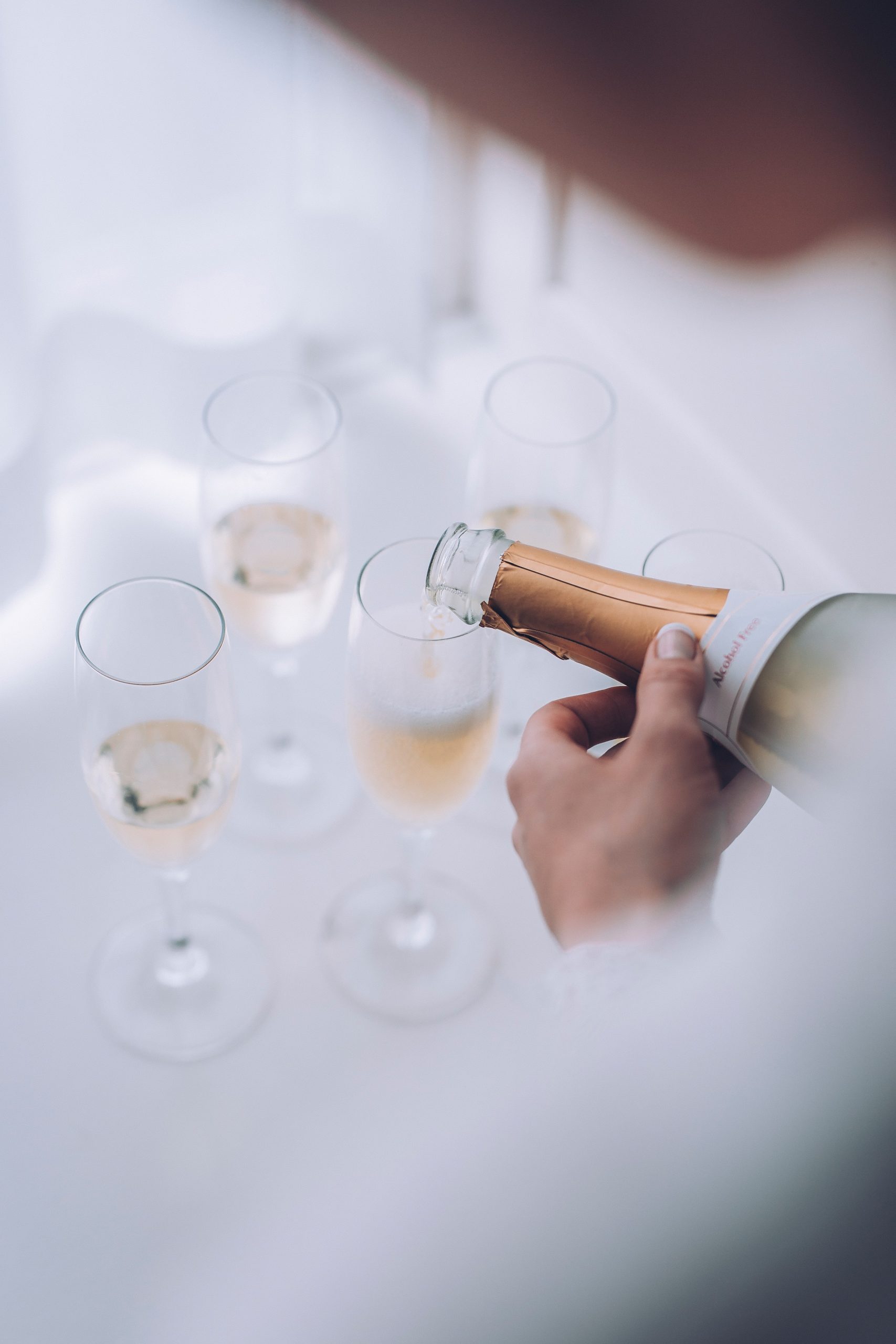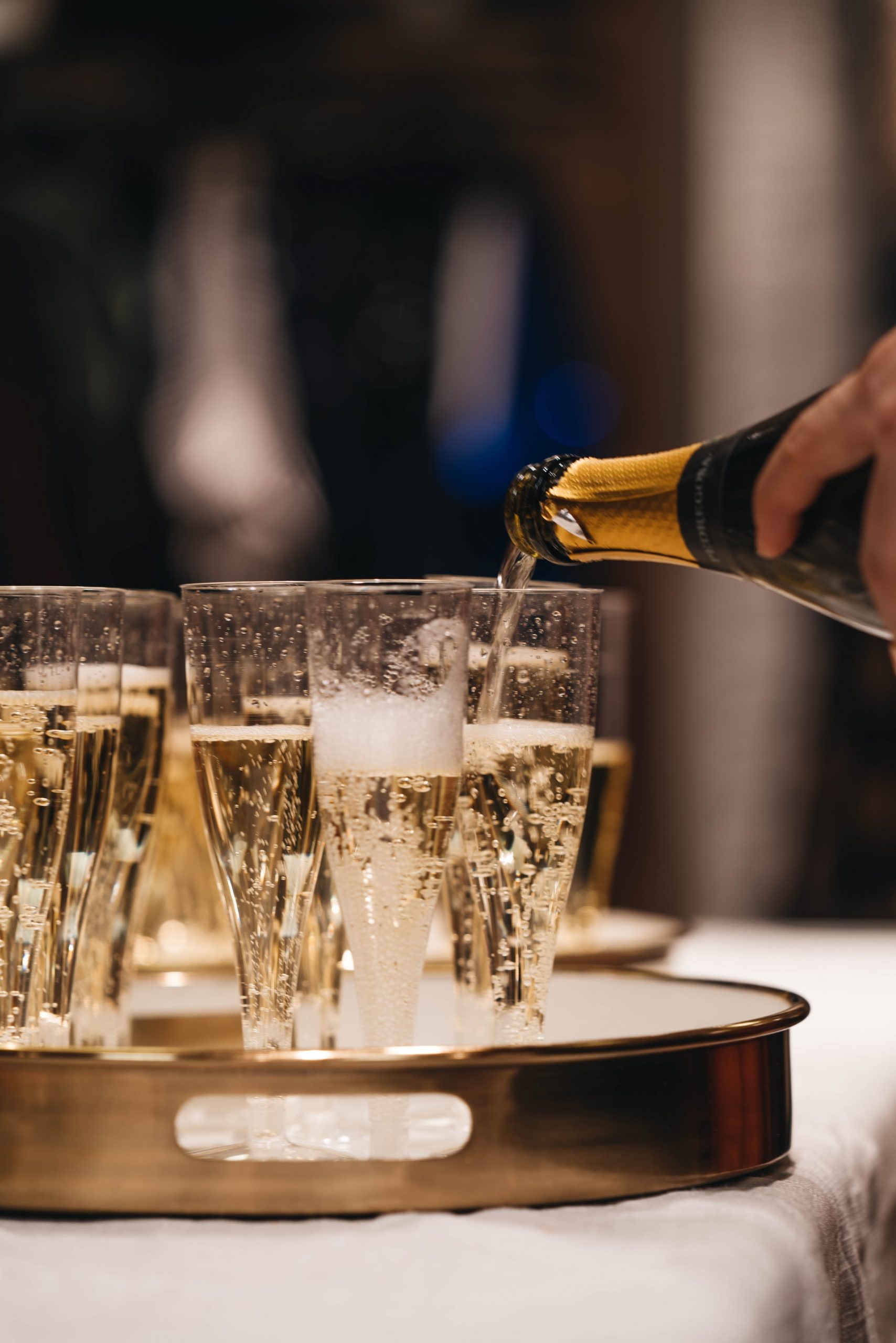Champagne is the drink that embodies excellence at all times. Indeed, it represents both prestige and luxury throughout the world. It dresses up great festivities of all kinds, from the most common to the most
Champagne is the drink that embodies excellence at all times. Indeed, it represents both prestige and luxury throughout the world. It dresses up great festivities of all kinds, from the most common to the most sophisticated.
What exactly is champagne?

Champagne is a sparkling wine of French origin.
What and how is it made?
Two methods of production exist:
1. The grape varieties
In general, champagnes are made from a mixture of three main grape varieties, including Chardonnay, Pinot Noir and Pinot Meunier. Other grape varieties such as Petit Meslier, Pinot Blanc or Pinot Gris can be used, but the trio mentioned above is the most common. They are most often made by blending several years of harvests with reserve wines.
2. The Champagne method
It is qualified as traditional. The effervescence is produced during the second fermentation. The first step is to use harvested grapes to make wine without bubbles. Then, the pressure is made to assemble the appropriate grape varieties.
The ultimate goal of this method is to create foam in the bottle. The wines will be composed of sugar, yeast and old wine to be aged for fifteen months. The bottles will be placed at a 45° angle with the cork facing down and then turned over until they mature. Before being put on the market, disgorging procedures must be carefully carried out.
Producers
Many winegrowers produce their champagnes locally. Of these great experienced and passionate professionals belongs the producer Champagne Petit-Triolet located in Fèrebrianges. Most often, elaborating champagne comes from a family heritage and constitutes a very specific art. Indeed, to master this sector is not given to everyone because it requires a particular taste and a palate of the finest.
Specificity of champagne
Champagne is qualified as light when its colour is clear. And contrary to that, the amber or old gold effect indicates its power in mouth.
Types of champagne according to their use
Champagne is not just taken as you expect. Indeed, its tasting differs according to the type of the corresponding event as well as the dishes served.
1. The Brut Champagne without year or BSA
It contains little sugar and is perfectly suited as an aperitif for big events such as weddings, engagements or others. Its greatest quality lies in the fact that it goes well with all the dishes served. It is the most popular wine.
2. Vintage Brut Champagne
It is made of wines from the same year. It is aged about eight years. It lends itself to all circumstances because of its exceptional taste.
3. Demi-sec, dry and dry champagne

Semi-dry champagne is characterized by its slightly higher sugar content compared to a brut champagne. Its tasting is advised during the taking of dessert. On the other hand, dry champagne is taken at the end of the meal. And dry champagne is advised for the rather fruity desserts.
4. Rosé champagne
This champagne is made from a mixture of red and still-white wine. It originates from the French region “Champagne”. It is ideal to finish a gourmet touch.b It is a wine combining honor, lightness, finesse and delicacy.
5. Champagne Blanc de Noir
Made from black grapes with white flesh. It is recommended for the celebration of marriage because of its power and accompanies the meats and the fish favourably.
6. Champagne Blanc de Blancs
As its name suggests, it is made exclusively from white wine, chardonnay. Like the Blanc de Noir champagne, it is a wine of honor. It is suitable for all major events and excels at hosting meals.
7. The prestige champagne
As its name indicates, it is composed of wines qualified as top of the range for each given winemaker. It can be enjoyed at any event without exception.
8. Zero dosage or non-dosed champagne
This champagne contains no sugar and is suitable for all types of festivities.
9. Champagne without bubbles
They are without bubbles and can be used as aperitifs.
10. The sweet champagne
This champagne is the sweetest.
Final thoughts

During your big events, in order not to have regrets about the right choice, it is always wiser to resort to the great producers specialized in the art of champagne. This way, you will ensure the highest quality for your guests. Sound off in the comments section below, and tell us what you want to read next and if you want to read more about wine.

